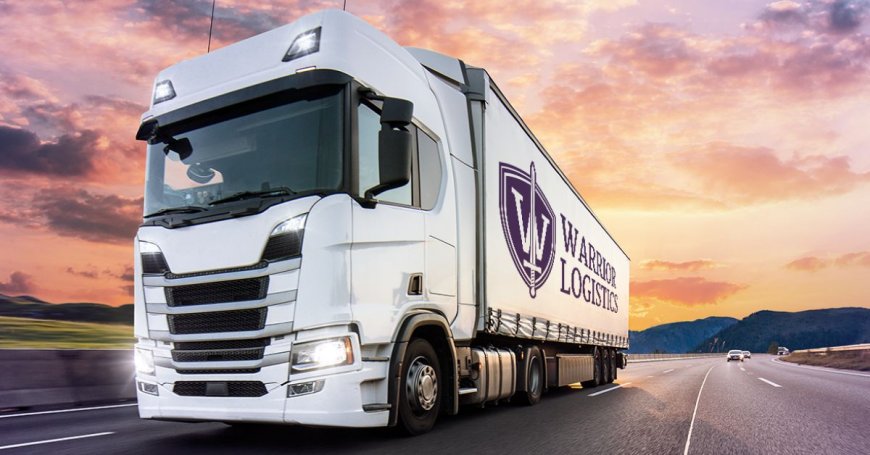What Is the Role of a Freight Forwarder
Understand the key responsibilities of a freight forwarder and how they help streamline your logistics and global shipping needs.

Efficient logistics is the backbone of successful businesses. Whether shipping domestically or internationally, moving goods smoothly from origin to destination requires coordination, documentation, and compliance with regulations. This is where a freight forwarder becomes essential. Acting as a key intermediary in the logistics chain, a freight forwarder simplifies complex shipping processes and ensures that your cargo arrives safely and on time.
Defining a Freight Forwarder
A freight forwarder is a logistics expert who arranges the transportation of goods on behalf of businesses. While they don’t physically move the cargo themselves, they work closely with carriers—including air, ocean, rail, and trucking companies—to organize the most efficient routes and services.
Freight forwarders are responsible for planning the journey of goods from manufacturer to market. Their knowledge of customs regulations, import/export laws, and documentation requirements helps reduce delays, fines, and unexpected costs.
Core Responsibilities of Freight Forwarders
Freight forwarders provide a broad range of services, including:
-
Route planning and carrier coordination
-
Documentation and compliance
-
Cargo insurance
-
Warehousing and consolidation
-
Customs clearance
Working with a reliable provider of freight forwarding services minimizes risks and maximizes logistics performance.
Why Businesses Need Freight Forwarders
Freight forwarders act as logistics partners, not just service providers. They bring immense value by streamlining operations and offering specialized expertise, especially for international trade.
Businesses that lack in-house logistics teams benefit from a freight forwarder’s global network and knowledge. This is particularly crucial for companies shipping across borders where regulations, tariffs, and customs procedures vary. With freight forwarders managing the details, companies can focus on core operations instead of navigating complex shipping logistics.
Freight Forwarding and Land Logistics
While freight forwarding spans multiple transportation modes, road freight is often a central part of the shipping journey. Freight forwarders collaborate with trucking companies to manage pickups, last-mile deliveries, and regional distribution.
They also arrange for specialized transport such as flatbed services when oversized or heavy cargo requires alternative handling. Flatbeds provide an open platform that makes it easier to load and unload irregular freight.
By integrating these services into a cohesive plan, freight forwarders improve delivery timelines and reduce handling errors.
Freight Forwarding for Global Reach
Expanding into international markets requires precise coordination across ports, borders, and customs zones. Freight forwarders act as your global logistics manager, ensuring your cargo meets compliance standards in each region.
Their established relationships with shipping lines, airlines, and government agencies enable smoother transit across borders. Whether shipping by sea or air, your freight forwarder works to prevent costly delays and optimize your logistics strategy.
Advantages of Using Freight Forwarding Services
Partnering with a freight forwarder provides several benefits:
-
Efficiency: Save time and reduce complexity
-
Cost savings: Benefit from consolidated shipments and volume discounts
-
Risk mitigation: Reduce delays and penalties from compliance issues
-
Scalability: Expand operations without heavy internal logistics investment
Companies that prioritize efficiency and dependability trust experienced freight forwarding services to support their growth and operations.
Conclusion
Freight forwarders are essential players in the logistics landscape. They coordinate carriers, manage documentation, ensure compliance, and safeguard your goods throughout the shipping journey. Their ability to integrate multiple modes of transport—including reliable trucking companies and flatbed services—makes them a valuable partner for businesses of all sizes.
Whether you're a growing company shipping across states or an enterprise expanding into global markets, a freight forwarder brings the expertise and efficiency you need to succeed.
Frequently Asked Questions (FAQ)
1. What does a freight forwarder do?
A freight forwarder arranges the transportation of goods by coordinating carriers, managing documentation, and ensuring customs compliance.
2. Do freight forwarders transport cargo themselves?
No, they act as intermediaries between the shipper and carriers, organizing logistics but not moving the cargo directly.
3. Why should I use a freight forwarder?
Freight forwarders save time, reduce risks, and help businesses navigate complex shipping processes efficiently.
4. Can freight forwarders handle domestic and international shipping?
Yes, they coordinate both regional and global shipments across air, sea, and land transport.
5. Are freight forwarding services cost-effective?
Yes, by consolidating shipments and negotiating with carriers, freight forwarders can reduce logistics costs significantly.





































































